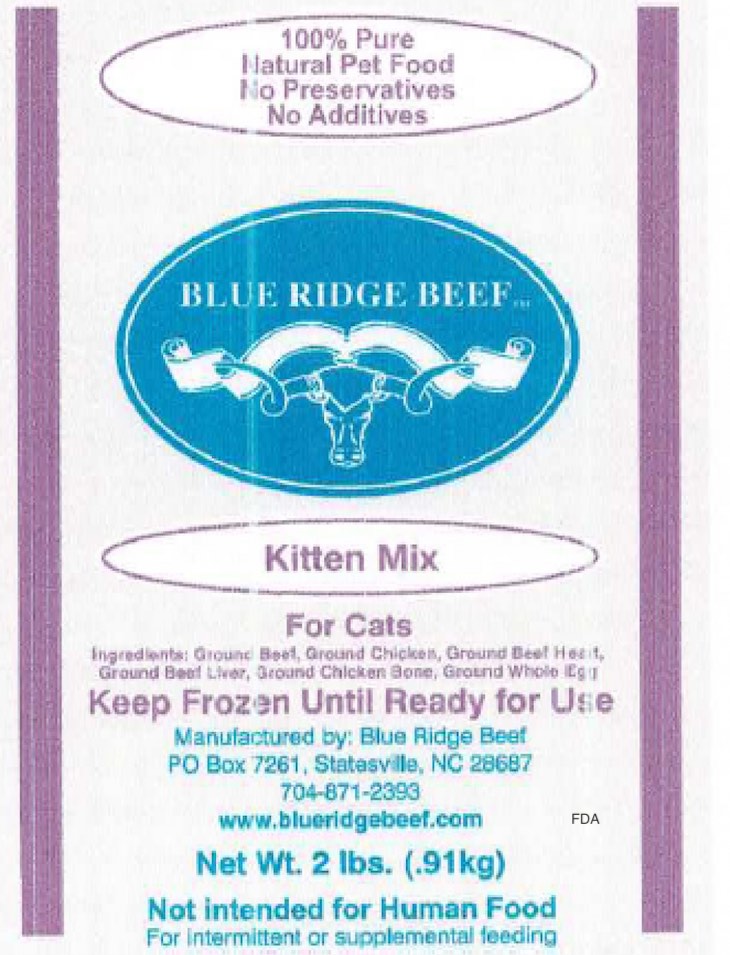Understanding the Dangers of Cats, Dogs and Aspirin: Toxicity Risks for Pets
The biggest cause of aspirin poisoning is well-meaning people giving their dog or cat the wrong dose.

This pet health content on aspirin toxicity in dogs and cats was expertly written by a licensed veterinarian.

- Understanding the Risks of Dogs and Aspirin: Metabolic Differences in Pets
- Symptoms of Aspirin Toxicity in Dogs and Cats
- Causes of Aspirin Toxicity in Dogs and Cats
- Diagnosing Aspirin Toxicity in Dogs and Cats
- Treating Aspirin Toxicity in Dogs and Cats
- How to Prevent Aspirin Toxicity in Dogs and Cats
- Safe Alternatives to Aspirin for Dogs
- Consulting Your Vet Before Giving Aspirin to Dogs and Cats
- Frequently Asked Questions (FAQ)
- References

Don’t leave your pet’s food safety to chance
Sign up for Petful recall alerts today.

Understanding the Risks of Dogs and Aspirin: Metabolic Differences in Pets
When your pet is in pain, it can be tempting to give them an over-the-counter painkiller designed for human use. However, it’s crucial to remember that:
- Dogs and cats break down drugs differently from humans, both in terms of how and how quickly this process occurs.
- The risk of accidentally poisoning your pet is high due to these metabolic differences.
Aspirin is a prime example:
- In humans, the active ingredient, acetylsalicylic acid, is deactivated within 3 to 4 hours.
- In dogs, this process takes 9 to 13 hours, while in cats, it can take 22 to 45 hours—up to 10 times longer than in humans.
Due to this slower detoxification, aspirin stays in the bloodstream longer in both dogs and cats, which means repeated doses can lead to poisoning your pet.
Symptoms of Aspirin Toxicity in Dogs and Cats
Overdose of aspirin (acetylsalicylic acid) can lead to serious symptoms in both dogs and cats. These symptoms often start with gut-related issues, such as:
- Nausea
- Vomiting
- Appetite loss
- Blood loss from gastric ulcers (evidenced by bloody vomit and dark-colored feces)
If untreated or if additional doses of aspirin are given, the symptoms can escalate to more severe issues, including:
- Rapid, shallow breathing
- Marked weakness
- Poor coordination
- Collapse and even seizures
Causes of Aspirin Toxicity in Dogs and Cats
The most common cause of aspirin poisoning in dogs and cats is well-meaning pet parents giving their pets the wrong dose of aspirin. Key factors include:
- Incorrect dosage: If the dose is too high or repeated, the accumulation of active acetylsalicylic acid in the bloodstream can quickly reach dangerous levels.
- Cats are particularly vulnerable: Since cats lack an enzyme necessary to deactivate aspirin, even small doses can remain in their system for up to 3 days, making repeated doses potentially disastrous.
Aspirin for Cats with Aortic Thromboembolism
In some cases, your vet may prescribe a low dose of aspirin for its anticoagulant properties, particularly if your cat is at risk of blood clots. This is similar to how warfarin is used in humans. Always follow the dosage instructions given by your veterinarian and never increase the dose on your own.
Diagnosing Aspirin Toxicity in Dogs and Cats
There is no specific test that can definitively diagnose aspirin toxicity. However, diagnosis often relies on a combination of:
- Routine blood screening: This may reveal nonspecific changes related to anemia.
- Veterinary experience: A skilled hematologist might spot changes in a cat’s red blood cells that suggest aspirin damage.
- Detailed history: Information from the pet owner, such as recent aspirin administration, can be crucial in reaching a diagnosis.
Treating Aspirin Toxicity in Dogs and Cats
If you suspect your pet has been given aspirin incorrectly, seek urgent veterinary care. Treatment options include:
- Inducing vomiting: If the aspirin was ingested within the last 2 hours, making your pet vomit can help remove unabsorbed medication from the stomach.
- Activated charcoal: Administered by a vet, this helps absorb any remaining aspirin in the gut.
- Sodium bicarbonate: This can accelerate the excretion of acetylsalicylic acid, aiding in its removal from the body.
- Supporting care: Treatments might also include medications to help heal gastric ulcers and intravenous fluids for pets that are not eating or drinking.
In the video below, Dr. Greg Martinez, DVM, explains more about aspirin and other NSAIDs for pain relief in pets, particular in terms of relieving pain from arthritis:
How to Prevent Aspirin Toxicity in Dogs and Cats
Preventing aspirin toxicity in dogs and cats involves careful consideration and responsible medication practices. Key prevention tips include:
- Consult your veterinarian: Always check with your vet before giving your pet any human medication, including aspirin, not specifically licensed for animal use.
- Exercise extreme caution with cats: Even a regular dose of aspirin can be dangerous for cats, so it’s crucial to be especially vigilant when considering medication for them.
By following these guidelines, you can significantly reduce the risk of aspirin toxicity in dogs and cats.
Safe Alternatives to Aspirin for Dogs
When it comes to managing pain or inflammation in dogs, it’s important to explore safe alternatives to aspirin. While aspirin might seem like an easy solution, there are other medications and treatments that are specifically designed for dogs and carry less risk of toxicity.
- Veterinary-prescribed pain relief: Medications such as carprofen, meloxicam, and deracoxib are non-steroidal anti-inflammatory drugs (NSAIDs) formulated for dogs. These medications are much safer than aspirin when used as directed by your veterinarian.
- Natural remedies: Some pet owners explore natural alternatives like omega-3 fatty acids, turmeric, and glucosamine supplements, which can help reduce inflammation and pain without the risks associated with aspirin toxicity.
Always consult your vet before trying any alternatives, especially when dealing with aspirin toxicity in dogs and cats, to ensure the treatment is safe and effective for your pet’s specific condition.
Consulting Your Vet Before Giving Aspirin to Dogs and Cats
Before administering aspirin or any other medication to your pet, it is crucial to consult your veterinarian. Dogs and cats metabolize drugs differently from humans, and what is safe for one species may be harmful or even fatal for another. Your vet can provide the best advice on whether aspirin is appropriate for your pet and guide you on the correct dosage to avoid aspirin toxicity in dogs and cats.
- Customized care: Your vet will consider your pet’s overall health, weight, age, and any existing conditions before recommending any treatment. This personalized approach helps prevent the risk of aspirin toxicity in dogs and cats.
- Potential interactions: If your pet is already on medication, your vet can identify any potential drug interactions that could increase the risk of toxicity.
By consulting your vet first, you can ensure that your pet receives safe and effective care, minimizing the risks associated with giving aspirin to dogs and cats.
Frequently Asked Questions (FAQ)
Can dogs have aspirin and how much?
Dogs can have aspirin, but only under the guidance of a veterinarian, who will determine the correct dosage based on the dog’s weight and condition.
Can you give dogs aspirin and how much?
You can give dogs aspirin only if prescribed by a veterinarian, who will provide the appropriate dosage to avoid the risk of toxicity.
References
- Small Animal Toxicology and Poisoning. Gfeller & Messonnier. Publisher: Mosby.
- “Toxin exposures in dogs and cats: drugs and household products.” J Am Vet Med Assoc 205(4): 557–560.
- The Veterinary Formulary. Yolande Bishop. Publisher: Pharmaceutical Press. 4th edition.
- “Can I Give My Dog Aspirin?” American Kennel Club. https://www.akc.org/expert-advice/health/aspirin-for-dogs/
- “Can I Give My Dog Aspirin?” WebMD. https://www.webmd.com/pets/dogs/can-i-give-my-dog-aspirin








